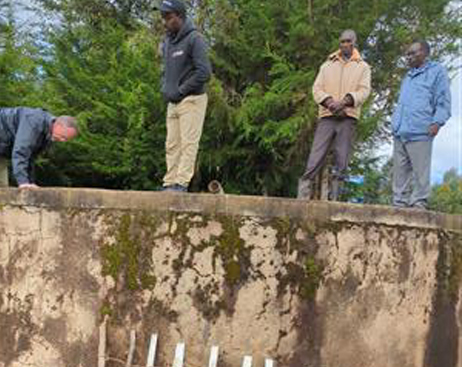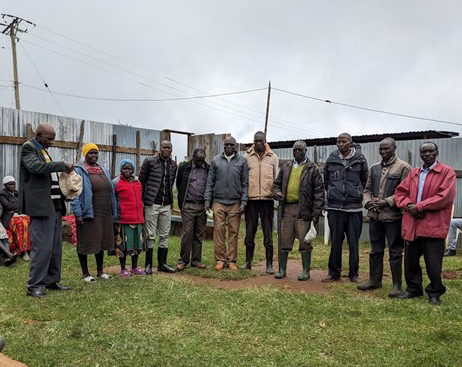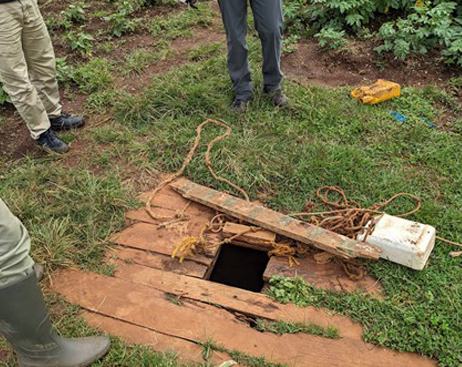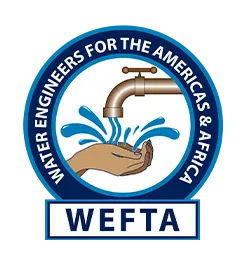
Kitany Water Project
Requesting support from our donors
Total Project Cost: $264,250
Project Location: Chebior, Kitany, Kenya
Project & Program Background
The residents of Chebior, schools, and the health facilities currently get water from locations along the river. The responsibility of fetching water for their homes and schools falls primarily on the women and children. This takes valuable time away from other household tasks, agriculture activities, and classroom attendance, and limits the amount of water available for use.
Community Background
The community of Chebior is a sub-location of Kitany located in Elgeyo Maarakwet County, Kenya. Situated in the Northern Rift Valley, Chebior is comprised of approximately 1,500 households with a population of 6,000 people. The community is rural, and the primary economic activity is farming of maize, potatoes, tea, coffee, and dairy. There are three healthcare facilities (HCFs), eleven schools, and ten churches in the area.
Water, Sanitation, and Hygiene (WASH) Concerns
There are no water systems that currently serve the population. The river where mostly women and children collect water, is also used for livestock watering and laundry. The water quality is impacted by the multiple uses, making it unsafe. The three healthcare facilities do not have access to enough water to provide maternity or operational services to patients, making this a WASH in HCF project, as well.
Proposed Projects
The water source has been identified and produces 66 gallons per minute in the dry season and 528 gallons per minute in the rainy season, sufficient to serve the population of the area. The project will include the development of an intake structure and protection of the spring. A solar-powered pump and pump house will be constructed to transfer water into various locations, where it will flow by gravity to the community. The project will include seven water storage tanks, five elevated tanks, and two ground masonry tanks. The distribution line is estimated to be 5 miles in length and will serve potable water kiosks, watering points, laundry points, and livestock watering locations around the community. Initial treatment of the water will take place at the water source, with additional treatment taking place at the potable water kiosks.
Sustainability Considerations
The community of Chebior does not currently have access to a water system. The members of the community are willing to help construct a water system by contributing a financial portion and helping with construction. The government engineers and community leaders support the development of the water system and will help keep the community motivated to follow through with construction. Community members will also be trained on maintaining the system and efficient water use, for long-term sustainability.
Community Engagement
The community has established a committee to oversee and manage the project, as well as engage the engineer and hold regular meetings. Additionally, the community will contribute funds and help secure the materials for construction. Finally, the community will also identify a plumber to maintain the system and register all users of the system to ensure efficient hygienic use of water.
The cost estimate for the complete Kitany Water Project is $ 264,250 USD. The community contribution is expected to be $77,625, or approximately 30% of the project cost.
WEFTA Volunteers
WEFTA will donate engineering and post-construction follow-up services to this project, equating to 15% of the total project cost.
For additional information about this project, please contact us.



Approximately40% of Kenyan’s lack access to clean water.

